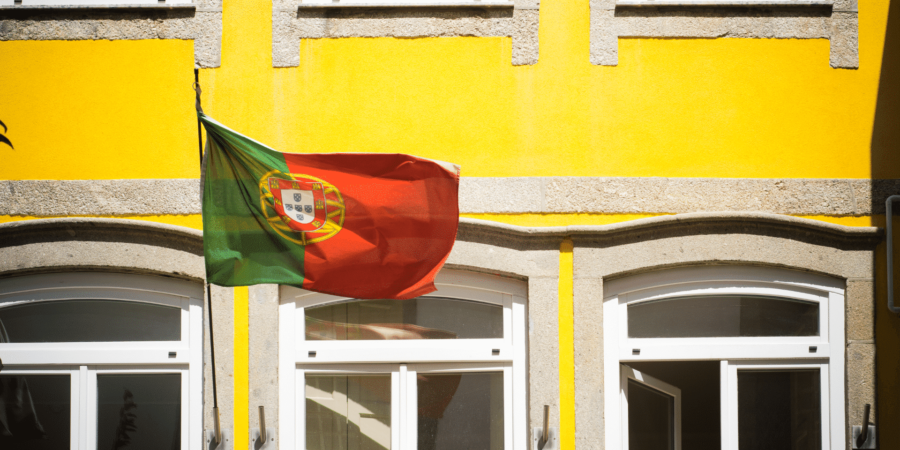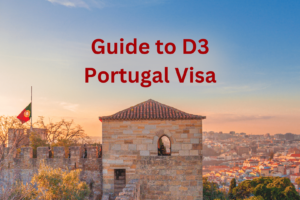Portugal might not be the first place you think of when you think of emigrating, but it’s quite popular, nonetheless. Great weather, friendly people and a tolerant, progressive society all make for a great place to live.
If you’ve been thinking of moving somewhere, and southern Europe is on your short list, the D7 visa for Portugal might help you to make this your new home base. Here’s what you need to know.

D7 Visa for Expats
The D7 visa for Portugal is also known as the passive income or retirement visa. It’s a program for people who don’t need to work or study in Portugal, and who won’t be starting a business to support themselves in the country.
These people will make Portugal their home (and can bring their spouse and children with them) but they don’t need some of the options that other kinds of golden visa might give them.
This visa program is designed to attract retirees or people who have a stable passive income (such as income from a website or blog or from their investments) to live long term in Portugal. This helps to stimulate the local economy.
People who have a D7 visa in Portugal are also allowed to conduct professional activities in Portugal, and they and their families have visa free access to the Schengen region of Europe. Which makes this a great choice for someone who is looking for a base to explore Europe. You can also apply for permanent residence when you qualify, and you have access to most Portuguese social services once you a resident – which means you can access state healthcare and education for yourself and your family.
You don’t have to be from the EU to apply either – although the process may vary depending on where you are from.

How to Apply for a D7 Visa Portugal?
Like any kind of immigration, there’s a lot of paperwork involved in applying for a D7 visa for Portugal.
You will need to gather personal documentation like your passport, birth certificate, marriage certificate and other forms. You will then need to complete an application for residency and submit it to the Portuguese government.
They may ask you for additional information or to provide proof of your health and financial situation.
Once the government has approved your application, you will be asked to submit your passport and the Portuguese government will issue a visa that will allow you to enter and live in Portugal as a resident.
If you don’t plan to apply for permanent residence or are not eligible when your permit expires, you will need to apply to renew it to maintain your legal status in Portugal.

What Are the Requirements?
Anyone from anywhere can apply for a D7 visa for Portugal, but you do need to meet the minimum requirements in order to qualify. Those requirements are:
- You must get a Portuguese NIF number – this will identify you as a taxpayer once you are settled in the country
- You must be 18 years or older
- You must have a clean criminal record – and provide police clearance certificates
- Declaration of your reasons for wanting to reside in Portugal
- Proof that you have passive income, and that it comes from a legal source
- You must have plans to reside somewhere in Portugal and have proof of the same
- You must be prepared to spend at least 16 months of the first 2 year period in Portugal
- You must be able to show proof of funds – currently, the minimum amount for a single applicant is €8,460, and an additional 50% for your spouse, and 30% per child if applicable
- A health insurance certificate and travel insurance
- Your original passport and two photos, which will be used when you are issued your residence permit
Everyone in your family must be legally admissible to Portugal, which means your spouse also needs to have a clean criminal record and meet the other government requirements.
The Portuguese government, like most other countries, does do extensive checks to make sure that all potential immigrants are not a danger or security risk to their people before they grant residency status. So, make sure that you are always on the lookout for questions and document requests, and that you respond quickly!
FAQ
How much does it cost to apply for the D7 visa Portugal?
Depending on where you are applying from, and what kind of application you need to do, you can expect to pay 75 Euros for your application and another $90 when it’s approved. That doesn’t factor in costs to apply for documents, courier fees, travel costs or the required proof of funds.
How long does it take to get a D7 visa Portugal?
It usually takes between 60 and 120 days to get a D7 visa, depending on where you are applying from and what the application process is for your region.
How long is the D7 visa valid for?
The D7 visa is valid for one year each time you apply or renew your visa. Make sure that you apply for renewal a couple of months before your current one expires though, so you can maintain legal status in the country.
What kind of passive income can I have?
There are no real restrictions on what kind of passive income you can have and qualify for the D7 visa. As long as it’s legal, and it provides the money you need for residency in Portugal, it’s okay to use it as part of your D7 visa application.
What is the cost of living like in Portugal?
Portugal is actually very affordable to live in, particularly if you don’t want to live in downtown Lisbon!
Is this program only for retirees?
No. While the D7 visa is a great option for retirees who earn a regular income from their retirement savings, this program is open to everyone – even families.
Can I become a citizen with a D7 visa?
Yes, but the process is a long one. First, you have to meet the requirements and become a permanent resident. Then, when you meet citizenship requirements, you can apply for that too.





Comments: 7
Have you ever considered about adding a little bit more than just your articles? I mean, what you say is valuable and everything. Nevertheless just imagine if you added some great photos or videos to give your posts more, “pop”! Your content is excellent but with images and clips, this blog could certainly be one of the best in its field. Awesome blog!
Thanks for one’s marvelous posting! I really enjoyed reading it, you could be a great author.I will always
bookmark your blog and will eventually come back at some point.
I want to encourage you to continue your great posts,
have a nice day!
Excellent post. I was checking constantly this
blog and I am impressed! Extremely useful info specially the last part 🙂
I care for such info a lot. I was looking for this particular information for a very
long time. Thank you and good luck.
Heya i am for the first time here. I found this board and I find It
really useful & it helped me out a lot. I hope to give something
back and help others like you aided me.
I visited several blogs except the audio feature for audio songs present at this web site is in fact excellent.
There is certainly a great deal to know about this issue.
I love all of the points you have made.
My spouse and I stumbled over here by a different page and thought I might as well check things out. I like what I see so now i’m following you. Look forward to looking at your web page again.